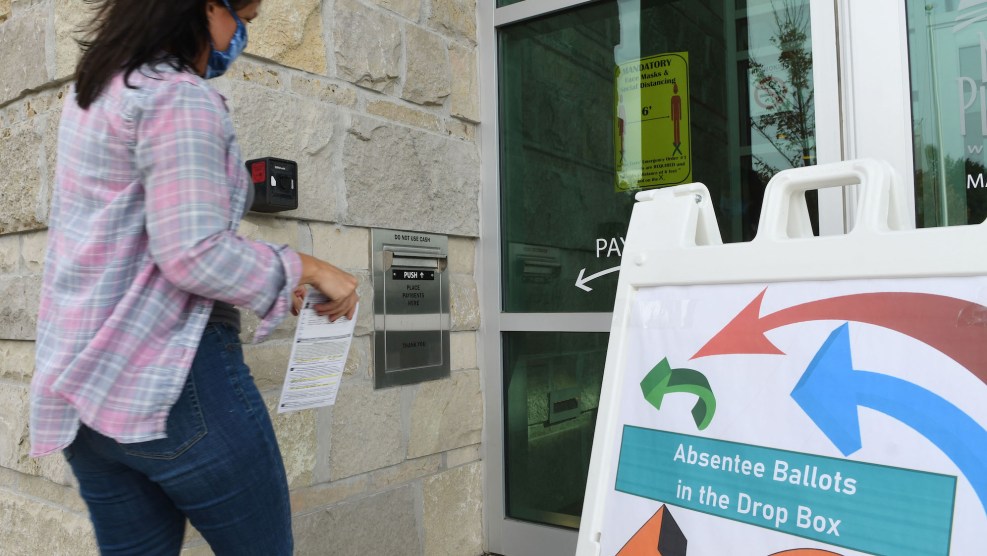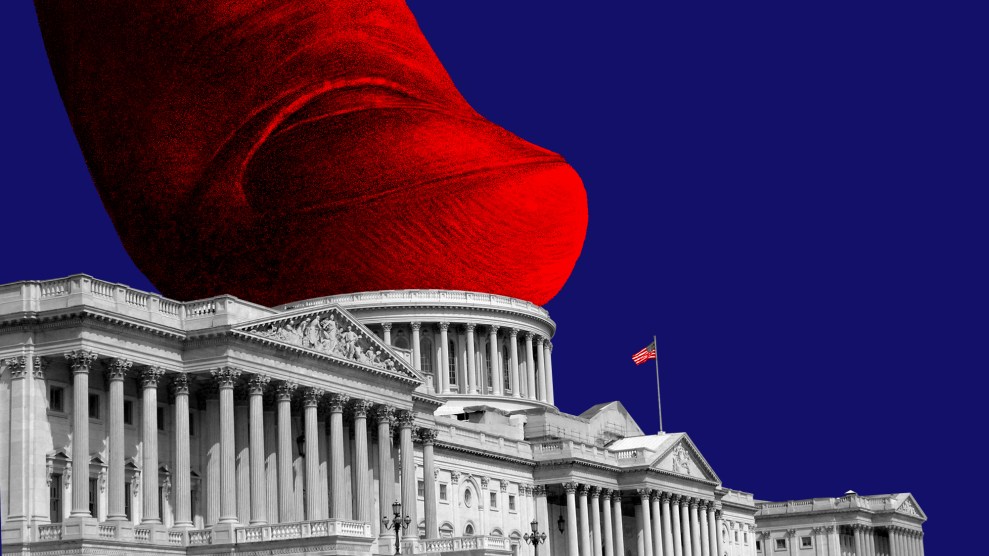
Voters using a drop box in Mount Pleasant, Wisconsin, last September to drop off early voting ballots for the 2020 presidential election.Mark Hertzberg/ZUMA
The Wisconsin Supreme Court has decided to allow a lower court order to stand that bans ballot drop boxes in the state’s April election. The 4-3 decision came after a right-wing legal group pushed forward a lawsuit brought by two men in suburban Milwaukee. The justices split along party lines with Republicans judges voting to ban the drop boxes.
Ballot drop boxes became popular during the pandemic because they allowed people to vote more easily without going into crowded polling locations. But even in 2016, nearly one in six voters used a ballot box. Republicans are now trying to get rid of them because they believe, wrongly, there is rampant voter fraud. (Another option is that it is all a pretense and they just think it could help them win elections.) South Carolina and Texas are both moving toward banning, or limiting, ballot boxes, as well.
The court has not yet made a final decision in the case. That decision, which is expected in the coming weeks, will determine the long term legality of drop boxes in the state. The case will also determine whether people can turn in someone else’s absentee ballot, another practice conservatives are trying to ban.
Wisconsin is one of the most important swing states in the nation. Republicans are hoping to gain as many advantages as they can before the state’s Democratic Governor Tony Evers and Republican Senator Ron Johnson come up for reelection in November.
Targeting ballot drop boxes is just one part of a broader, nationwide attack on voting rights by the GOP. As my colleague Ari Berman has reported, Democrats have failed to pass a voting rights bill in Washington as Republicans have taken action at the state level:
The stakes couldn’t be higher: If Democrats don’t pass these voting rights bills—and soon—the 2022 election will take place under voting restrictions designed to suppress turnout among Democratic-leaning constituencies, gerrymandered maps that roll back fair representation for communities of color, and election subversion laws giving Trump-inspired “Stop the Steal” candidates unprecedented power over election administration and how votes are counted. Collectively, these anti-democratic measures could cost Democrats control of Congress and crucial state offices in 2022, making it much easier for Republicans to rig the 2024 election.












